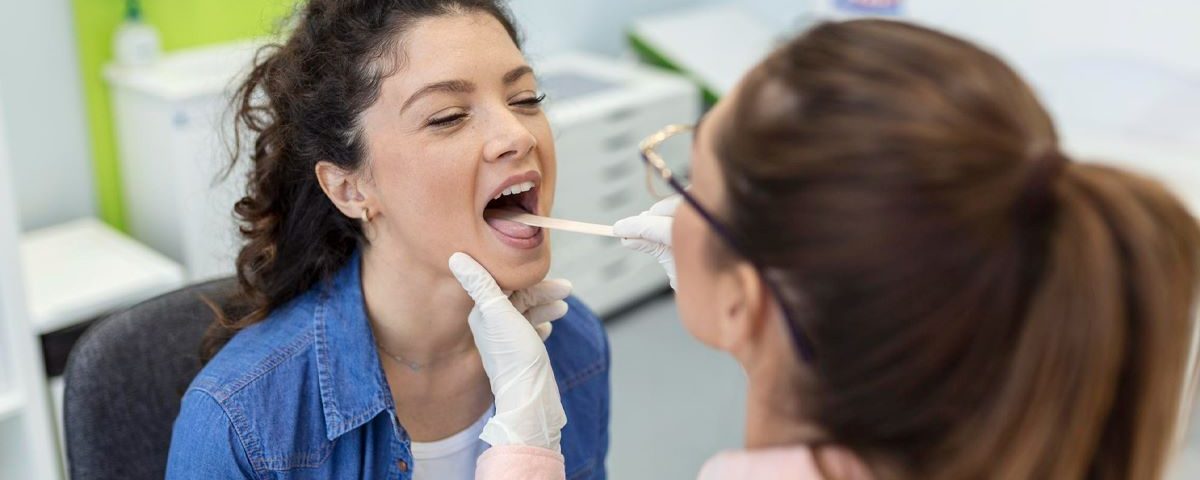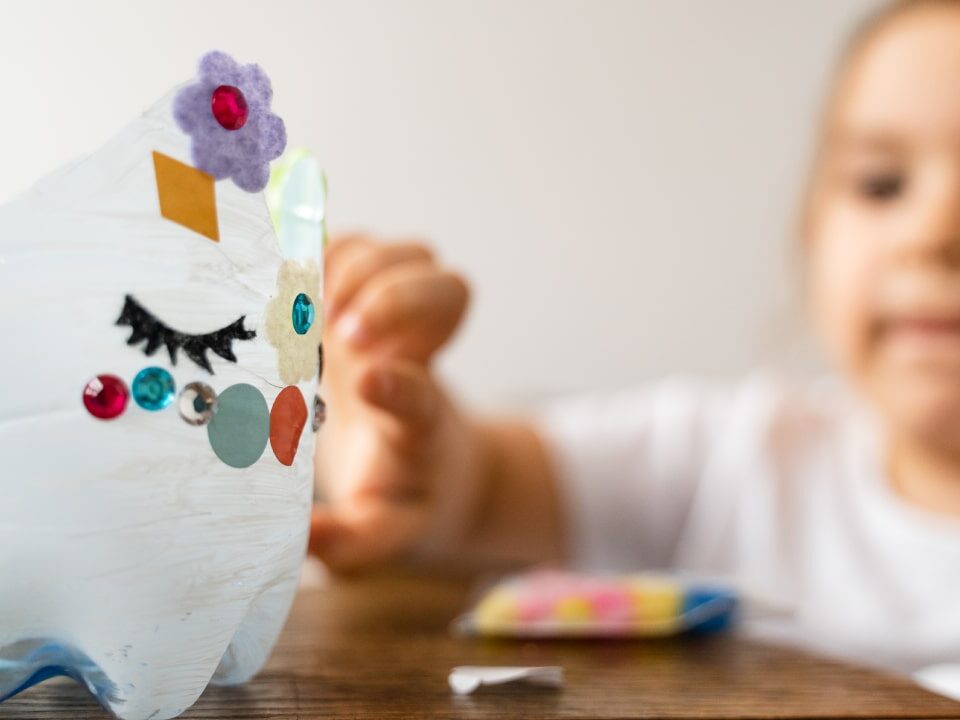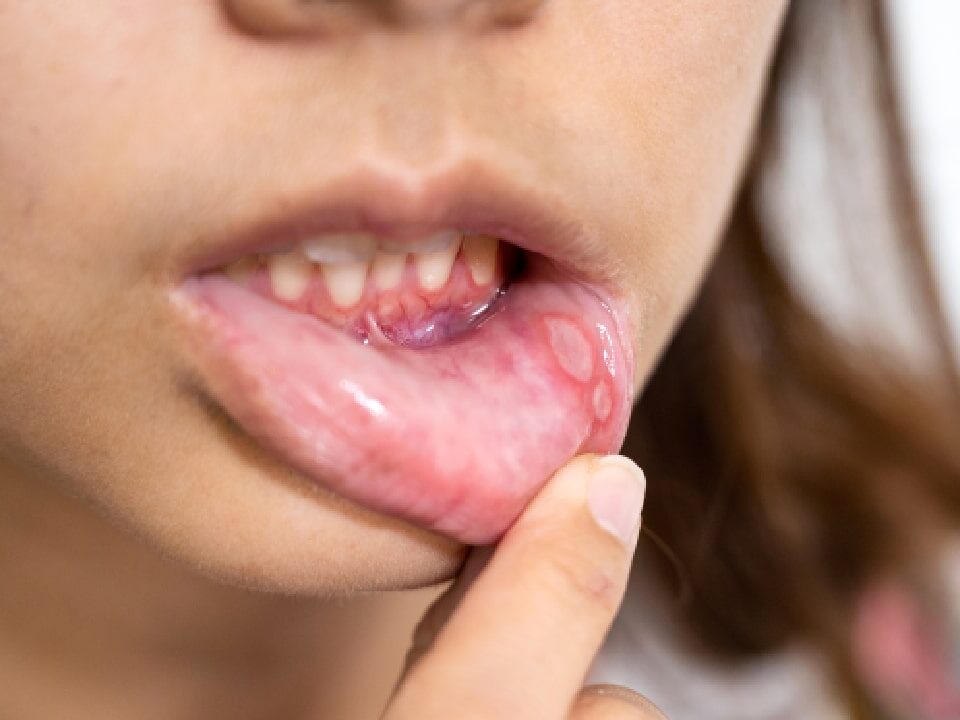
How Long After Teeth Whitening Can I Drink Coffee?
July 17, 2025
Can You Wear Invisalign Only At Night?
July 24, 2025An oral biopsy is a simple procedure where they remove a small piece of tissue from your mouth for testing. It helps dentists diagnose problems like unusual growths, chronic sores, or suspicious patches. Most of the time, healing goes smoothly. But, like any medical procedure, there is a small chance of infection. Knowing the signs of infection after oral biopsy is very important. Let’s go through them.
Table of Contents
ToggleSigns of Infection after Oral Biopsy
Some pain and swelling are normal for the first couple of days after a biopsy. But if things start getting worse instead of better, that’s when you need to pay close attention. Let’s go through the signs of infection after oral biopsy Phoenix:
Increased Pain
Mild soreness is expected. But if your pain keeps getting worse or feels sharper each day, it could mean an infection. Some people describe it as a burning or pounding feeling. It might even hurt to chew or talk when it didn’t before.
Spreading Swelling
It’s normal for the area to be puffy right after the biopsy. But if the swelling gets bigger every day or moves into your cheek, jaw, or neck, that’s a red flag. Swelling from infection often feels hot or firm to the touch.
Redness around the Biopsy Area
A little redness is okay in the beginning. But if the area turns bright red or deep red and looks shiny or raw, that’s not normal. If the red spreads out around the stitches or the sore, it could be your body’s way of showing that bacteria is growing there.
Pus or Discharge
If you see white, yellow, or green stuff coming out of the biopsy spot, that’s pus. Sometimes it has a bad smell. Healthy healing doesn’t look like that. There shouldn’t be any goo or gunk leaking from your gum or cheek.
Bad Taste or Foul Smell in the Mouth
Sometimes, you don’t see the signs of infection after oral biopsy, but you taste it. If your mouth has a bitter, sour, or rotten taste that doesn’t go away after brushing or rinsing, that might be from bacteria around the biopsy site. A smelly breath that’s stronger than usual is also a clue.
Fever Over 100.4°F
If your body starts heating up for no reason, that’s a classic sign of infection. Your immune system is fighting off something. If you feel warm, flushed, or sweaty and have pain in your mouth, too, those things together point to infection.
Chills or Body Aches
If you’re cold even with a blanket, or your body starts to ache like you have the flu, that means your body is reacting to something. Oral infections can cause this, especially when they spread or go untreated for a few days.
Trouble Opening Your Mouth
If it becomes harder to open your mouth all the way or your jaw feels tight or sore when yawning, that could mean the swelling has spread deeper. This happens when the infection gets into the muscles near your jaw.
Swollen Lymph Nodes
Feel under your jaw or the sides of your neck. If you notice small, round lumps that weren’t there before, and they hurt when you press them, that can mean your lymph nodes are trying to fight off infection near your mouth.
Bleeding that Doesn’t Stop
It’s normal to have a little bleeding the first day. But if it keeps bleeding for hours, or it stops and then starts again later, something’s off. Infection can make it harder for your blood to clot and the tissue to heal.
Wound Looks Worse
Check the biopsy spot every day if you can. It should slowly look less red, less swollen, and more closed up. If it starts looking dark, soft, or wet, like it’s breaking down, it’s not healing right.
Feeling Tired or Sick
This one’s tricky. Some people just feel off. You might feel extra tired, dizzy, or heavy. If that happens with a sore mouth and any of the signs above, your body might be using extra energy to fight an infection.
If you notice two or more of these signs of infection after oral biopsy, it’s time to call your dentist Phoenix. Waiting too long can make it worse, and we’d rather catch it early when it’s easy to treat.
Treatment for Infection After Oral Biopsy
If any signs of infection after oral biopsy start, don’t panic. Dentists treat this kind of thing all the time, and most cases are easy to manage. Here’s how they are usually treated:
- Your dentist might give you antibiotics, either as pills or a mouth rinse.
- You can take pain relievers, like ibuprofen or acetaminophen, to bring down the swelling and help with pain.
- The dentist may suggest saltwater rinses a few times a day to keep the spot clean.
- If there’s pus or swelling, your dentist might clean or drain the area in the office.
In some cases, your dentist will ask you to go back to the office so they can check your healing and make sure everything looks okay.
How Long Does It Take for an Oral Biopsy Infection to Heal?
| Type of Healing | Time to Heal |
| Mild infection | 3 to 7 days |
| Moderate infection | 7 to 10 days |
| Severe infection | 10 to 14+ days |
| Normal healing (no infection) | 5 to 7 days |
Oral Biopsy Infection Treatment in Phoenix, Arizona
If you’re seeing any signs of infection after oral biopsy, come see us at Atrium Dental in Phoenix, Arizona. We do oral biopsies often, and we know how to take care of your mouth during and after healing.
Our team of dentists and dental surgeons can check the area, clean it, treat the infection, and help you feel better fast. You can schedule an urgent visit with us online right now!
Signs of Infection after Oral Biopsy: Let’s Recap
It’s important to know the signs of infection after oral biopsy so you can act fast if something doesn’t feel right. A little soreness is fine, but if the pain gets worse, if there’s pus, swelling, or fever, don’t wait it out. It’s better to get help early. Take care of your mouth, follow the healing tips, and reach out if you’re unsure. We’re always here to help you get back to feeling good.
FAQs
How do you know if you have an infection after a biopsy?
Look for pain, pus, swelling, fever, or bad taste near the biopsy area.
How long does it take for an oral punch biopsy to heal?
Usually, 5 to 7 days if there’s no infection.
How do I know if my oral surgery is infected?
If you feel worse instead of better, with swelling, redness, or pus, it may be infected.
What are the complications of oral biopsy?
Infection, bleeding, delayed healing, and swelling are the most common.



